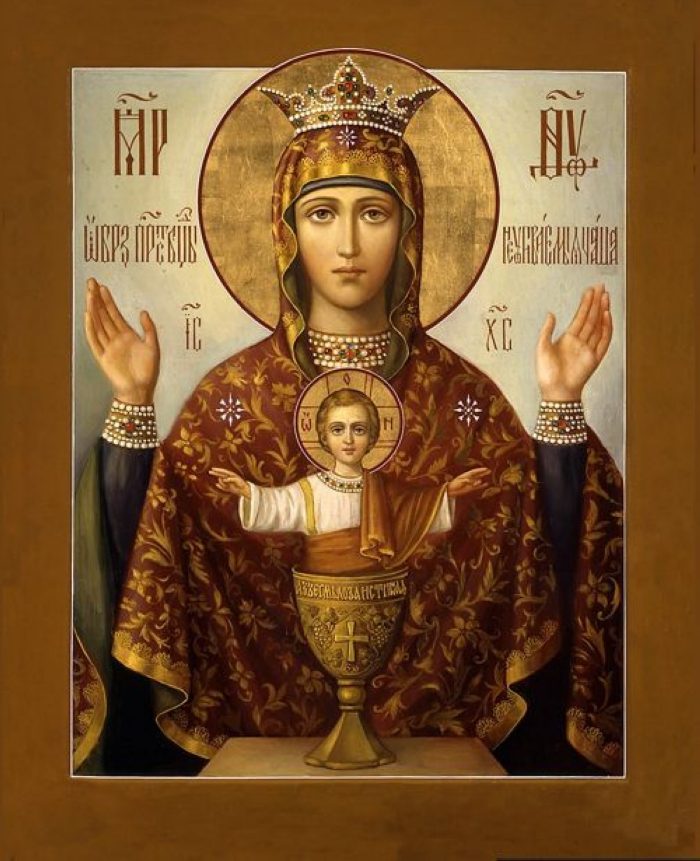**The Role of Women in the Church and Society: A Christian Perspective**
The question of the role of women within the church and their broader place in society has been debated for centuries. In Orthodox Christianity, different priests may hold varying perspectives on this issue—some may focus on the biblical figures of Delilah or Herodias, others may see women as myrrh-bearers, akin to the women who first witnessed the Resurrection of Christ. But what is clear across these interpretations is the belief in the essential, complementary unity of men and women.
According to the Christian worldview, men and women are equal parts of a singular whole within the world created by God. The world would not function if these two halves did not balance and complete each other. This unity is underscored in the teachings of the Apostle Paul, who famously wrote: “the two will become one flesh” (Ephesians 5:31), emphasizing the interconnectedness of men and women during their earthly lives.
In the divine eternal perspective, Paul also states, “There is neither male nor female; for you are all one in Christ Jesus” (Galatians 3:28). This points to a deeper unity, one that transcends earthly divisions. The theologian Pavel Evdokimov described marriage as a “prophetic image” of the future state of human beings in their “integral nature,” indicating that gender distinctions will not matter in the ultimate fullness of Christian salvation.
Et- Women in the Gospel and Christian Tradition
There are profound moments in the Gospels that are often overlooked in discussions about the place of women in the faith. One of the most significant is the role of the Virgin Mary in the story of salvation. Mary, a young Jewish woman, stands at the center of thousands of years of prophetic history. All the patriarchs, kings, and prophets of Israel prepared the way so that this humble girl could say “yes” to becoming the mother of God, thus allowing the Incarnation to take place.
It’s critical to note that Mary was not simply used by God; she was not a passive participant. Unlike mythological figures such as Alcmene or Danae, who were deceived by the gods, Mary was given the free will to accept or decline this pivotal role. She was chosen not merely as a vessel but as a willing collaborator in God’s plan for the salvation of humanity.
Furthermore, in this moment of divine revelation, there is no man’s role in the immediate narrative. It is God and a woman who stand at the center of salvation history. At the Crucifixion, while many men—disciples included—are absent, Mary stands firm, witnessing the anguish of her son and sharing in His suffering. Christ’s triumph over death is linked to her presence at the cross, as the prophecy foretold her heart too would be pierced.
This depiction elevates women to an essential role in Christian theology, far beyond mere household duties or childbearing. Throughout history, women have held remarkable roles in the Church, contributing intellectually, spiritually, and in leadership.
For example, **St. Paula**, a highly educated woman, assisted St. Jerome in translating the Bible. In the 6th and 7th centuries, monasteries in England and Ireland trained learned women steeped in theology, canon law, and poetry. **St. Gertrude** even translated the Scriptures from Greek into Latin. Female monastic orders, especially in Catholicism, were heavily involved in social services such as education and healthcare.
### The Church’s Social Concept and Women’s Role
The Russian Orthodox Church provided a comprehensive guide on this issue in its 2000 document, *“The Fundamentals of the Social Concept of the Russian Orthodox Church.”* This document serves as a framework for understanding the role of women in church life and society, especially in the context of evolving state and social norms.
#### Key Points from the Document:
1. **Dignity and Role of Women**: The pre-Christian world often regarded women as inferior, but Christianity revealed the full dignity and vocation of women, epitomized by the Virgin Mary. Mary represents the highest possible moral purity and spiritual perfection, surpassing even angels. Her motherhood and participation in the Incarnation reaffirm the essential role of women in God’s plan for salvation.
2. **Early Christian Involvement**: From the very beginning, women played an active role in the organizational, liturgical, missionary, and charitable activities of the Church. The Church honors the myrrh-bearing women and the many female saints who achieved righteousness through martyrdom, confession, and service.
3. **Equality and Difference**: While the Church values the political, cultural, and social equality of women with men, it also emphasizes that men and women have distinct, God-given roles within both society and the family. This is not seen as a hierarchical imbalance but rather as a division of responsibilities—men are called to lead with love














Leave a Reply